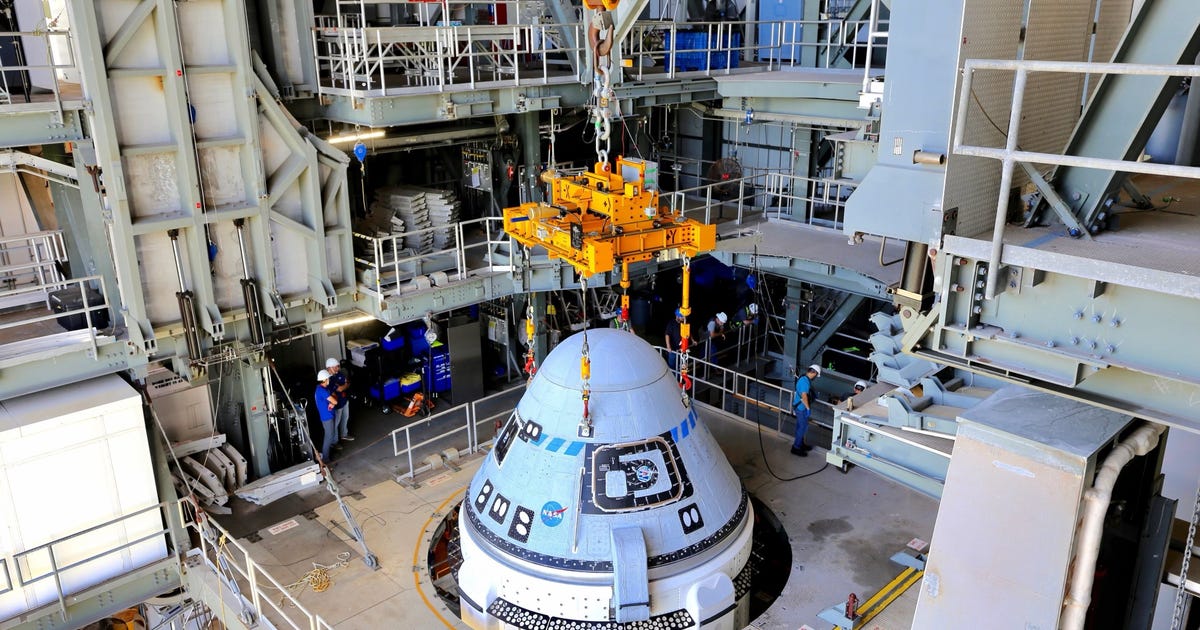Boeing launch to iss boeing orbital flight test starliner boeing starliner launch to iss starliner launch to iss boeing starliner orbital flight test 2 boeing orbital flight test starliner boeing s starliner test flight boeing flight test starliner nasa boeing orbital flight test starliner boeing starliner boeing starliner cancelled

Boeing Starliner test flight to ISS pushed back to 2022
Boeing's Starliner spacecraft continues to have trouble making it to the International Space Station, with its uncrewed Orbital Flight Test-2 to the ISS now getting pushed into next year. The test is part of NASA's Commercial Crew Program, which sees the space agency working with private companies like Boeing and SpaceX to shuttle astronauts to the station.
NASA said Friday that the team behind OFT-2 "is working toward launch opportunities in the first half of 2022." That follows a scrubbed launch this past August. In December 2019, the first major Starliner flight test didn't go as planned, with the uncrewed spacecraft launching but experiencing a timing glitch and failing to reach the ISS. It did, however, safely return to Earth.
The issue now, with OGT-2, has to do with an "oxidizer isolation valve issue on the Starliner service module propulsion system," NASA said Friday in a blog post.
"This is a complex issue involving hazardous commodities and intricate areas of the spacecraft that are not easily accessed. It has taken a methodical approach and sound engineering to effectively examine," Steve Stich, manager of the Commercial Crew Program at NASA's Kennedy Space Center in Florida, said in the post.
In addition to trying to achieve NASA's goal of "safe, reliable and cost-effective access to and from the International Space Station and low-Earth orbit," the Commercial Crew Program ties in with the space agency's Artemis and moon to Mars plans. Artemis calls for putting the first woman and next man on the moon sometime soon and eventually setting up sustainable exploration there. Knowledge gained from Artemis will be put to use in getting ready to send astronauts to the red planet.
So far, SpaceX and its Crew Dragon spacecraft have had better luck than Boeing when it comes to the Commercial Crew Program. After some delays of its own, the Elon Musk-founded company completed its Demo-1 uncrewed test mission in 2019 and has since shuttled astronauts to the ISS several times. Earlier this week, NASA said it was reassigning a pair of astronauts from Boeing missions to an upcoming SpaceX mission. In April, NASA announced it had selected SpaceX to provide the human landing system for the Artemis program.
There's a space-tourism angle for SpaceX as well. In June, the company signed a deal to send space tourists to the ISS starting next year (at a reported $55 million price tag per seat). And last month SpaceX took a step in that direction when its Inspiration4 mission sent a crew composed of private citizens orbiting around the Earth.
It's not clear when, exactly, Boeing's Orbital Flight Test-2 will happen.
"Potential launch windows for OFT-2 continue to be assessed by NASA, Boeing, United Launch Alliance, and the Eastern Range," NASA said in its post. "The team currently is working toward opportunities in the first half of 2022 pending hardware readiness, the rocket manifest, and space station availability."
Source
